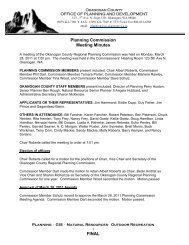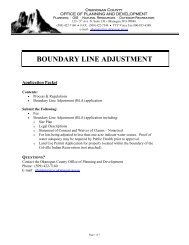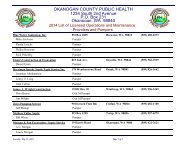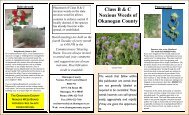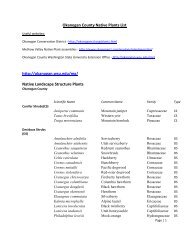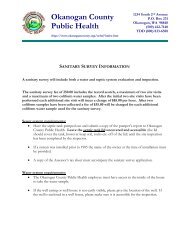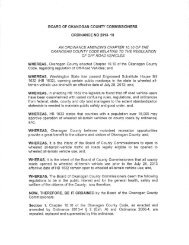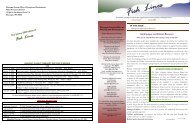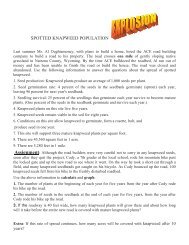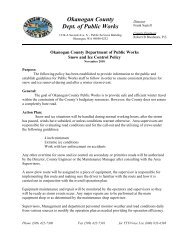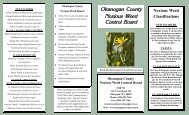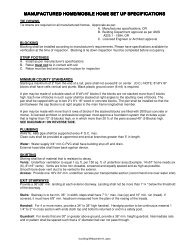Weed Control Methods Handbook: Tools ... - Invasive.org
Weed Control Methods Handbook: Tools ... - Invasive.org
Weed Control Methods Handbook: Tools ... - Invasive.org
You also want an ePaper? Increase the reach of your titles
YUMPU automatically turns print PDFs into web optimized ePapers that Google loves.
Adjuvants 8.5<br />
How to choose an adjuvant<br />
We recommend that once you decide which herbicide to use, you should contact your local<br />
(county or otherwise) weed coordinator, agriculture commissioner, and/or your local university<br />
weed extension agent for suggestions. Some herbicide companies, such as DuPont (2000, 2001),<br />
produce lists of brand-name adjuvants that are approved for use with their herbicides, but most<br />
companies do not. Local representatives from the herbicide companies (or their technical help<br />
phone lines), as well as your local chemical supplier or dealer, may also suggest adjuvants that<br />
enhance the effects you want from an herbicide.<br />
California and Washington have some of the strictest state regulations for herbicides and<br />
adjuvants. In order for an adjuvant to be registered in these two states, the adjuvant company<br />
must divulge all product ingredients, list all registered components on the label, and submit<br />
efficacy data to prove the product will do what the company says it will. To see if the adjuvant<br />
that you are interested in using is labeled in these states, see:<br />
http://www.cdpr.ca.gov/docs/label/labelque.htm#regprods<br />
http://picol.cahe.wsu.edu/LabelTolerance.html<br />
Box 3. Tips for adjuvant selection (from Brian Carroll of the Helena Chemical Company 2001)<br />
• Read labels, but remember that adjuvants are not regulated on the federal-level by the U.S. EPA, and<br />
are therefore not held to any strict standards.<br />
• Always consult your local agriculture extension agent, local weed coordinator, or local chemical<br />
dealer<br />
• Calculate the cost of adjuvant based on % active ingredient<br />
• Be familiar with the adjuvant company and salesperson-are they reputable?<br />
• Look for a California or Washington registration number on the label – these states require all<br />
adjuvant products sold within the state to be registered with their state’s equivalent to the U.S. EPA.<br />
To be registered, the company must divulge all product ingredients, list all registered components on<br />
the label and submit efficacy data to prove the product will do what the company says it will do<br />
• Buy high-quality adjuvants<br />
• It is not always necessary or desirable to add an adjuvant<br />
• Use good application techniques and calibrate equipment often.<br />
A complete and up-to-date listing of all currently available adjuvants, listed by name and by<br />
type, is available in the Compendium of Herbicide Adjuvants, prepared by Bryan Young (2000)<br />
of Southern Illinois University. This compendium is available hardcopy for $3.00, or can be<br />
viewed online at http://www.herbicide-adjuvants.com/index.html.<br />
Cautions about adjuvant use<br />
Always follow the herbicide label for mixing instructions and proportions to use. U.S. EPAapproved<br />
label directions have the full force of federal law behind them, and must be followed<br />
for lawful herbicide application. Consider how the resulting formulation (herbicide plus<br />
adjuvants) will affect populations of desirable native plants and other <strong>org</strong>anisms. Will the<br />
adjuvant increase damage to the desirable plants to unacceptable levels? If the formulation is<br />
likely to do more harm than good overall, do not use it. Also consider the timing of your<br />
<strong>Weed</strong> <strong>Control</strong> <strong>Methods</strong> <strong>Handbook</strong>, The Nature Conservancy, Tu et al.



